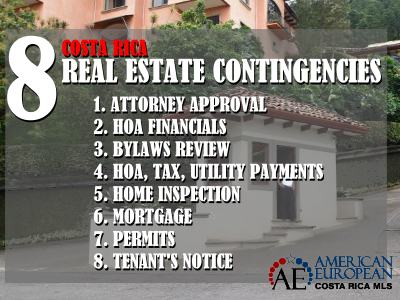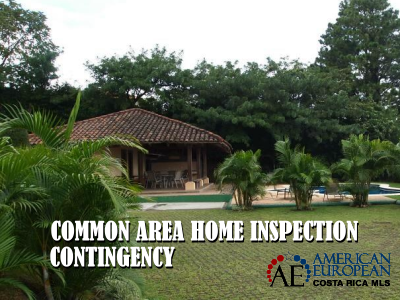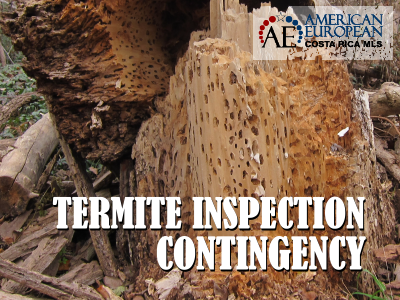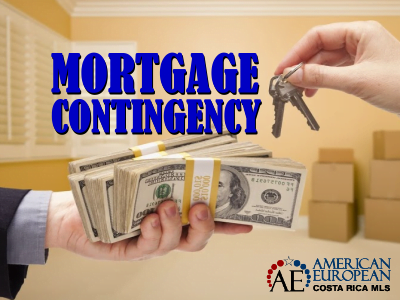Estimated Reading Time: 7 Minutes
How many times do you purchase a property in a lifetime? Not very often, right? You want to do it correctly, especially when you’re not used to real estate transactions in Costa Rica. Of course, you don’t know which real estate contingencies you should consider when offering on a property in Costa Rica unless you are a local real estate investor.
Even when you have bought and sold real estate in other countries, you’ll find that everything functions differently in Costa Rica. We don’t have a title company that will handle everything, from start to finish. Maybe you’re dealing with real estate agents who don’t know what they’re doing or just care about their commission check. You may be dealing with a lawyer specializing in everything that comes across their desk and doesn’t know much about real estate transactions.
Depending on the property type, different contingencies can be included in your purchase offer. Find out why including real estate contingencies in your offer is so important. Let’s check them out.

8 Real Estate Contingencies
1. Attorney approval
A title check is one of the most important real estate contingencies. First, your real estate agent should check the title when writing up the offer. Nonetheless, your attorney should be able to do a full title investigation before you approve the purchase. Are there any differences in property size between the National Registry and the survey? Any liens or annotations on the property? Pending legal disputes? Easements not registered? Is the seller the rightful owner? Maybe the seller has a mortgage, and the property is held in trust?
Many legal issues can prevent a purchase. You can avoid this by making it a contingency of attorney approval.
2. HOA Financials
Make your purchase subject to your approval of the Home Owner Association (HOA) financials. You want to see the financials of the condominium to find out if the HOA is healthy or not. You probably want to know if there are any debts or pending legal issues when investing your hard-earned money in a property. How many employees does the HOA have? Is the overhead acceptable? Are there any legal issues pending with past and present employees? Are the homeowners up to date in their HOA fee payments, or are there many behind, and what is the reason for this?
Remember that once you have closed your purchase, any problems with the HOA will burden the unit you are buying.

3. Bylaws review
Most condo owners do not have the bylaws or condominium rules and regulations handy. Make your offer contingent on reviewing the bylaws so you know the rules and regulations in the community.
Some bylaws do not allow pets, or don’t allow a particular breed or weight. Often, they won’t allow more cars than the number of parking spots you have, and won’t allow owners to park in the visitors’ parking. Some have specific construction regulations, a construction committee, and even a small remodel is a problem. Often, condominiums don’t allow Airbnb within the community.
4. HOA, tax, and utility payments
It is necessary to make a contingency for all utilities, property taxes, and HOA fees to be up to date at closing. Any debt will stay with the title when the property is transferred.
It is necessary to certify the HOA fees and property taxes, and not only show the last paid invoices. Old debt can exist, and having a certification that they are up to date is the only solution.
5. Home inspection
Even though you buy “as is” in Costa Rica, a home inspection is a “must” for buying a property in Costa Rica. A home inspection is considered a great investment.
A home inspection of a condominium is very different than one on a single-family home, where there are no common areas to inspect. There are many ways to describe what contingencies you’d like to include in the offer. Here are a few:
- Roof
- Sewage
- Retainer walls
- Pests like termites (Find out if there are signs of termites)
- Foundation and structural
- Pool
- Gym
I suggest you get the home inspection out of the way before you sign the option to purchase sale agreement and deposit the earnest money in escrow. That way, you will not get involved in disputes over the earnest money deposit.

6. Mortgage
Purchasing contingent on a mortgage approval is not customary in Costa Rica. The reason is that most countries’ mortgage pre-qualification and qualification process functions differently. A bank needs an option to a Sale-Purchase agreement (SPA), 3 months to fully approve the loan to the buyer. This is too long for a seller to take a property off the market and then have the bank reject the mortgage. That does not mean you cannot try to make your purchase contingent on a mortgage approval.
It is also important to note that banks in Costa Rica only lend to residents and citizens. However, if you’re a US national with a credit score of 640 or higher, email us, and we will try to find a lender for you.
7. Building permits
When you buy a home site or building lot, it is recommended that you include a contingency for building permits. To get a building permit, you must complete a set of legal documents that you or the seller might be unable to deliver.
A vital document is the water letter, supplied by the Water Company or Asada. However, this is impossible in quite a few locations and situations in Costa Rican real estate.
Another reason to add building permits to the list of contingencies is when you plan to remodel the home or add a structure such as a pool.
8. Tenant’s notice
If the property for sale is income-generating, and you’re buying as an investment, you want the tenant to stay. If you need the house for your occupation, you must check if it is possible to notify the tenant.
Make sure your attorney recommends how to handle the notice. Make the sale contingent on the property being unoccupied.

Bonus – Kick-Out Clause
This protects sellers by allowing them to continue marketing their home if your offer includes a home sale contingency. If another buyer makes an offer, you must remove your contingency or let the seller accept the new offer. You can also negotiate a larger non-refundable earnest money deposit for extra months if you can’t sell your property back home in time to close the property you are buying in Costa Rica.
Final thoughts
Quite often, a lack of concentration of the buyer, the real estate agent, or the attorney creates unnecessary problems at closing. If you have paid attention to these 8 Costa Rica real estate contingencies to consider in your purchase offer, you’ll have a closing without any headaches.
Thank you for your business as always. Please make sure you and your friends and family request the assistance of our affiliate agents for your next Costa Rica property purchase.


















